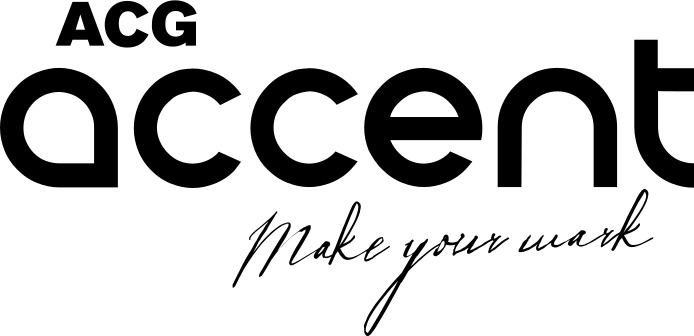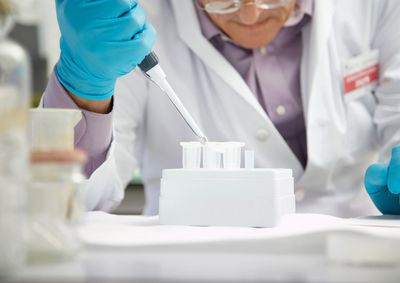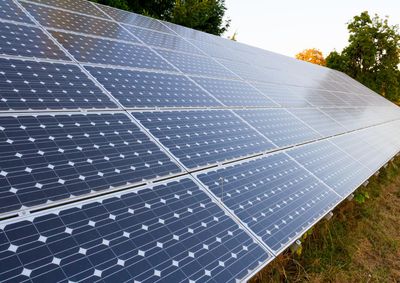Hållbarhet
Så bidrar vi till att göra skillnad.
Hållbarhet är något som genomsyrar hela vår verksamhet, som aktiva val, i allt från val av leverantörer, material, produktutveckling, inköp, utbildning och mycket mer. Vi är övertygade om att alla företag, stora som små, kan bidra till ett mer globalt hållbart samhälle och därför har vi kopplat vårt hållbarhetsarbete mot FN:s globala mål om att avskaffa extrem fattigdom, att minska ojämlikheter, att lösa klimatkrisen och att främja fred och rättvisa.
”För oss är hållbarhet att konsekvent sträva efter att producera produktmärkning med bästa möjliga material, innehåll och teknik. Oavsett om materialen är nya eller återvunna, arbetar vi för att minimera vår miljöpåverkan. Vårt mål är att skydda miljön och säkra en hållbar framtid för kommande generationer.”
Så bidrar vi till att göra skillnad.
Hållbarhet är något som genomsyrar hela vår verksamhet, som aktiva val, i allt från val av leverantörer, material, produktutveckling, inköp, utbildning och mycket mer. Vi är övertygade om att alla företag, stora som små, kan bidra till ett mer globalt hållbart samhälle och därför har vi kopplat vårt hållbarhetsarbete mot FN:s globala mål om att avskaffa extrem fattigdom, att minska ojämlikheter, att lösa klimatkrisen och att främja fred och rättvisa.
”För oss är hållbarhet att konsekvent sträva efter att producera produktmärkning med bästa möjliga material, innehåll och teknik. Oavsett om materialen är nya eller återvunna, arbetar vi för att minimera vår miljöpåverkan. Vårt mål är att skydda miljön och säkra en hållbar framtid för kommande generationer.”
Vi fokuserar på sex prioriterade områden.
Av FN:s sjutton globala mål har vi valt att fokusera på sex områden där vi bedömer att vi kan göra störst skillnad.
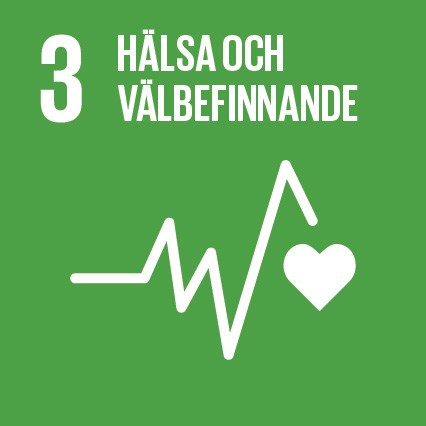
God hälsa och välbefinnande
En grundläggande förutsättning för människors möjlighet att nå sin fulla potential och bidra till samhällets utveckling.
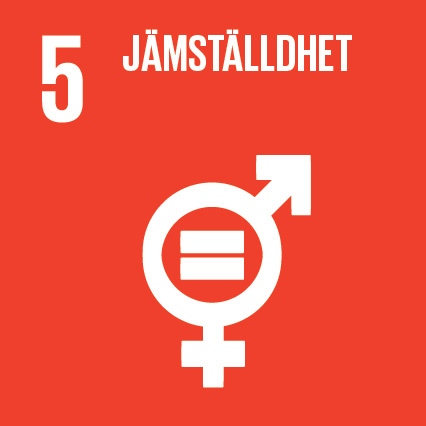
Jämställdhet
Att män och kvinnor är jämställda är en förutsättning för en hållbar och fredlig utveckling. Det handlar bland annat om en rättvis fördelning av makt, inflytande och resurser
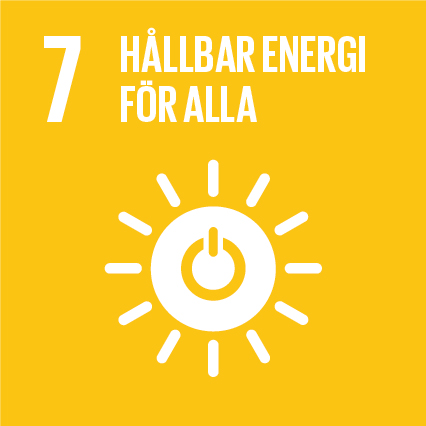
Hållbar energi för alla
Energiförbrukning är en av de största utmaningarna för många verksamheter, särskilt när leverantörers produktionsanläggningar drivs av icke-förnybara energikällor. Genom att utveckla gemensamma handlingsplaner med leverantörer och implementera energieffektiv teknik, kan energianvändningen minska, klimatpåverkan reduceras och användningen av förnybar energi öka – i linje med mål 7.2.
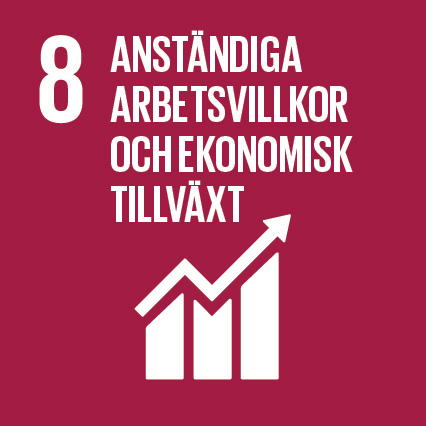
Anständiga arbetsvillkor och ekonomisk tillväxt
Bra arbetsvillkor främjar en hållbar ekonomisk tillväxt och är en positiv kraft för hela planeten. Vi måste skydda arbetstagarnas rättigheter och stoppa slaveri, människohandel och barnarbete
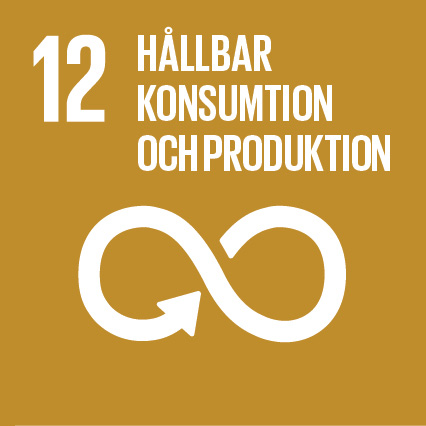
Hållbar konsumtion och produktion
Att uppnå hållbar utveckling kräver att vi minskar vårt ekologiska fotavtryck genom att ändra hur vi producerar och konsumerar varor och resurser. Det innebär inte bara miljöfördelar utan även sociala och ekonomiska fördelar.
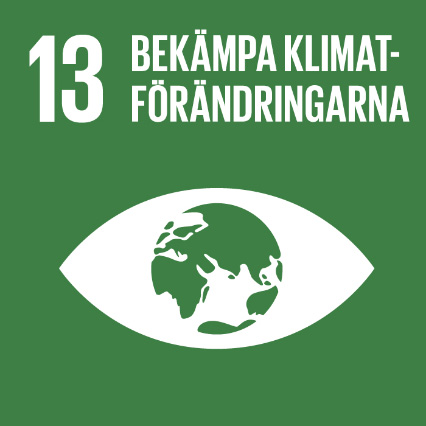
Bekämpa klimatförändringarna
Genom utbildning, innovation och efterlevnad av våra förpliktelser kan vi göra nödvändiga förändringar för att skydda planeten. Förändringar som också ger stora möjligheter att främja välstånd över hela världen.
Vår hållbarhetsresa.
Ingen kan göra allt men alla kan göra något och det finns oändligt mycket vi kan göra. Ibland kan det till och med kännas ogripbart, nästan lite övermäktigt. För att få struktur i vårt arbete och för att uppfylla våra ambitioner har vi därför brutit ned uppgiften i mindre beståndsdelar. Vi kallar det vår hållbarhetsresa. Poängen med den är att vi aldrig kommer att komma hela vägen fram. Det vet vi redan nu, för när vi nått något av våra mål kommer vi att sätta nya.
Digitala lösningar för optimal kemikaliehantering
Vi har implementerat två digitala verktyg, iChemistry och ChemAct, som hjälper oss att säkerställa att vår kemikaliehantering är i linje med gällande lagar och regler, samt att vi kan följa utvecklingen inom området. Dessa verktyg gör det möjligt för oss att hantera den kemiska processen med högsta kvalitet och effektivitet. De underlättar också för våra partners att genomföra relevanta riskbedömningar i ett tidigt skede, vilket säkerställer att alla nödvändiga åtgärder vidtas. Verktygen har blivit en integrerad del av vårt arbete och bidrar till en smidigare och mer säker hantering av kemikalier.
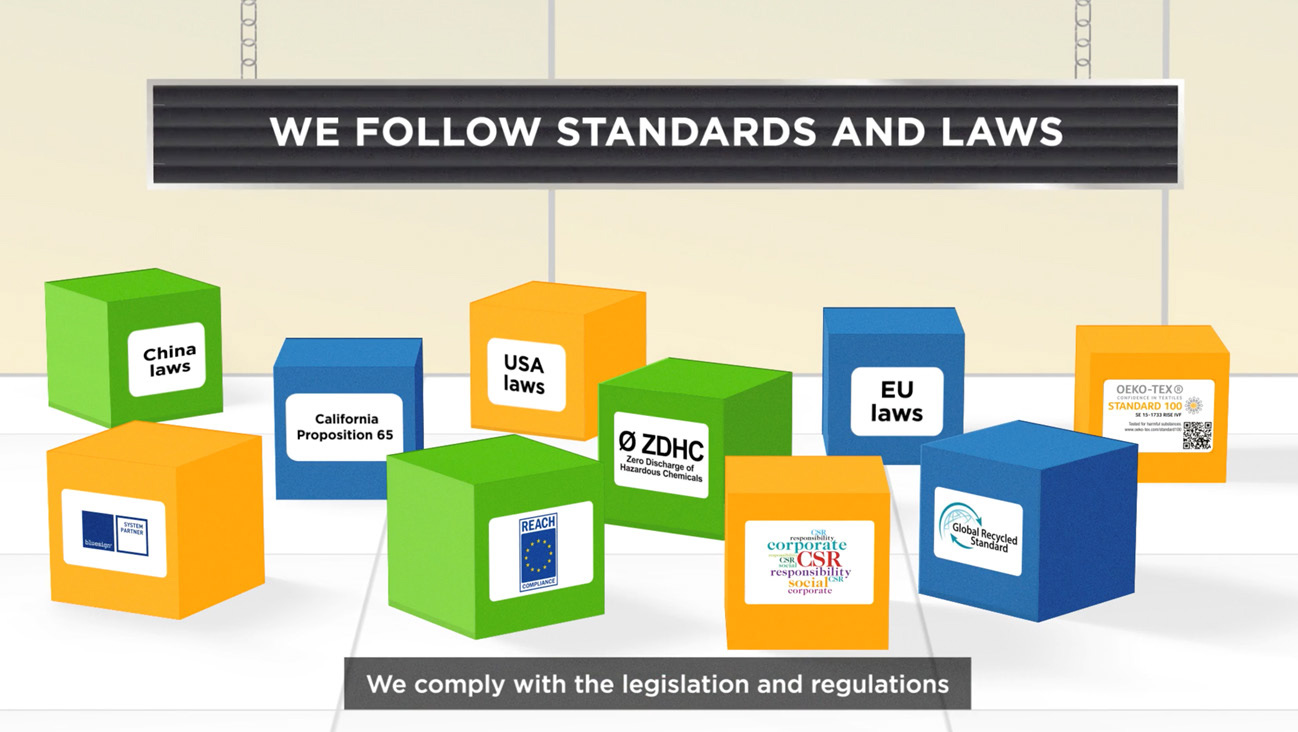
Certifieringar som skapar trygghet.
Vi följer de standarder och lagar som gäller för olika marknader världen över. Det är en trygghet, dels för oss själva, men också för våra kunder. Samtidigt presenteras ständigt nya riktlinjer och förhållningssätt. Ej tillåtna kemikalier måste ersättas, ibland från en dag till en annan. Ett viktigt arbete som ständigt måste göras – och vi gör det. Här är exempel på några av de lagar och certifieringar vi följer, det finns fler beroende på var i världen vi geografiskt befinner oss.
